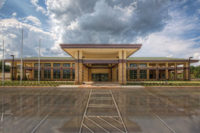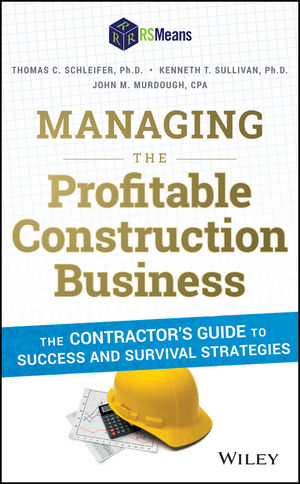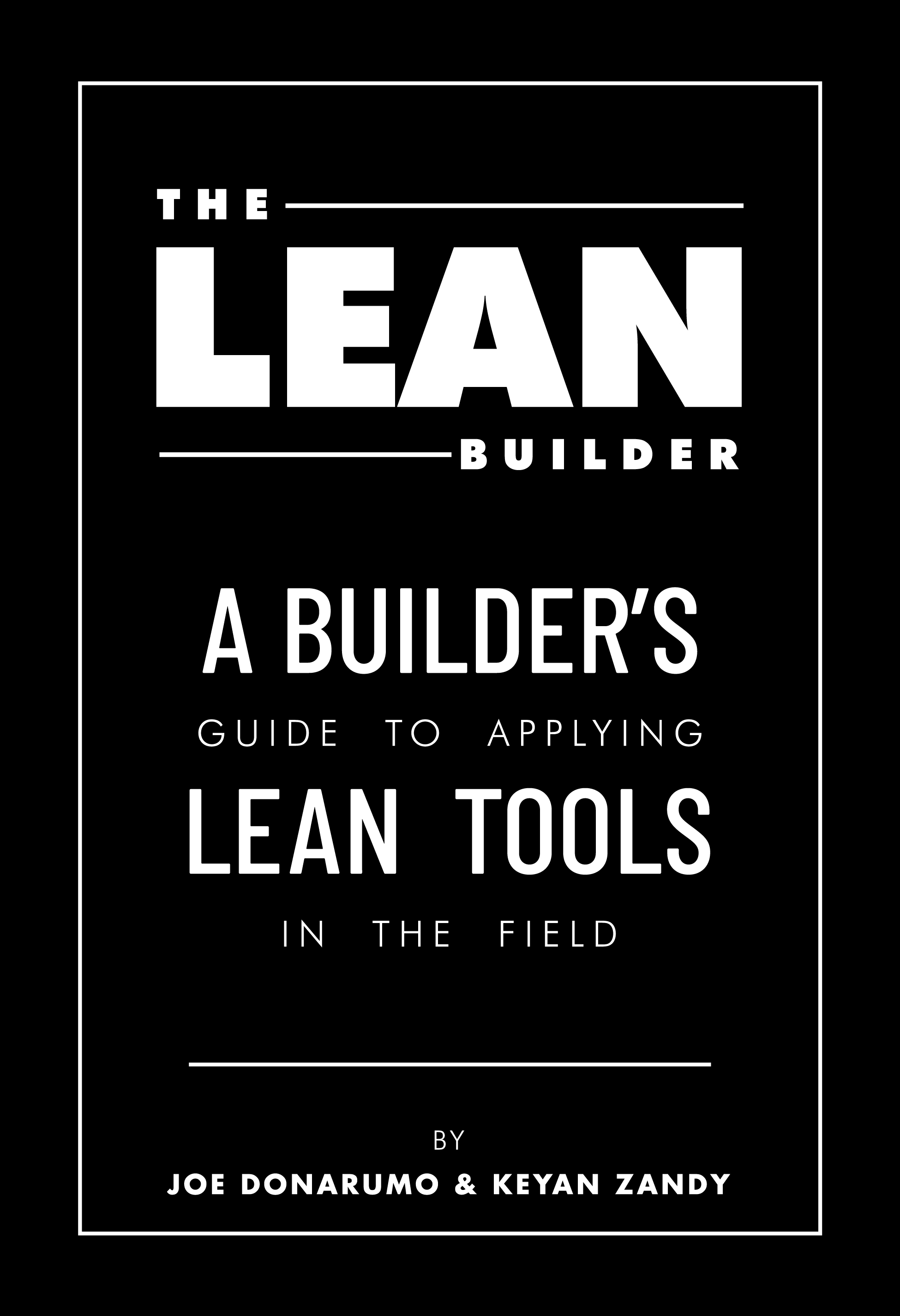The Ties That Bind
Beldon Roofing Company: A Family-Run Business That Prides Itself on Professionalism








Brad Beldon represents the third generation of his family to run Beldon Roofing Company in San Antonio, Texas. He’s keenly aware of the bad image many roofing contractors have with some members of the public, so he does all he can to combat that reputation — right down to the clothes he wears.
“One thing my dad always told me is, ‘Look, you’re just one step above a used car salesman in the eye of the customer.’ I wear a tie to work every single day because we look at our company as a professional organization. Our widget just happens to be roofing and guttering,” he said. “My competitors in town laugh at me, but I will continue to wear a tie every day because to us, that represents who we are. We are professional at what we do, 24-7.”
Brad Beldon is President and CEO of Beldon Roofing, which was founded by his grandfather, M.C. Beldon. Mike Beldon, Brad’s father, took over the reins in the early 1980s and he remains active with the company as its Chairman. Beldon Roofing is part of the Beldon Group of Companies, which also includes LeafGuard by Beldon. Chris Edelen is president and CEO of LeafGuard by Beldon, which has 13 branches across the country that manufacture and install gutter systems.
Operated from its San Antonio headquarters, Beldon Roofing concentrates primarily on commercial work, the majority of it re-roofing. “We prefer the negotiated work where we’re working directly with the owner and can address their concerns,” said Brad Beldon. “It’s very hard to do that through a general contractor. We certainly like to control the situation.”
The company is divided into three divisions. The Residential Division handles metal, shingles, tile, and the Dow Powerhouse™ Solar Shingle. The Commercial Division handles repairs and re-roofing, while the Customer Care Division handles service contracts for existing roof assets. “They run as independent silos and focus on their end,” he said.
Beldon Group of Companies had gross revenues of $69.9 million in 2011, and when the numbers are all in they should be near the $70 million mark in 2012 as well.
They are members of the National Roofing Contractors Association (NRCA), and Mike Beldon is a former NRCA president. They are also members of the Midwest Roofing Contractors Association (MRCA), the Roofing Contractors Association of Texas (RCAT), the Florida Roofing, Sheet Metal and Air Conditioning Contractors Association (FRSA), and the US Green Building Council (USGBC).
Beldon Roofing is a founding member of National Roofing Partners (NRP), a group of affiliated independent contractors that service accounts nationwide. “For us, NRP is a great fit with the approach they took to the market centering on maintenance and not the re-roofing side of the equation,” Brad said.
He noted that NRP helps his company by providing a steady flow of business to the maintenance division, even when times are slow. “NRP is another salesman for our company. It’s a great supplement to your business model.”
Brad cited other benefits as well, including the friendships he has made, the educational seminars, and the tips other members have shared with him. “The best practices we’ve learned through NRP have been incredible,” he said. “We share them, we use them, we implement them, and it just makes us a better contractor.”
Family Tradition
According to Brad, his grandfather, M.C. Beldon, served on Gen. Patton’s staff in World War II and the Beldons were stationed at Fort Sam Houston in San Antonio both before and after the war. M. C. Beldon lived in Boston, but when his wife told him she wanted to live in an area with warmer weather, he remembered San Antonio. He asked around and determined the area needed a roofing company. “After the war, my grandfather and my grandmother picked up everything they had. They moved here, not knowing a single soul, and 67 years later, my grandparents have a legacy that will live on for a long, long time.”
Brad started working in the family business when he was 12. “My dad brought me in and told me I would learn the business from the bottom up,” he said.
He started out cutting the grass and moved on to fabricating metal panels and working in the shop. When he was old enough, he operated machinery at the jobsite and later became a project manager. After graduating from the University of Texas in Austin, Brad went to work for John Van Wagoner and Jim Stamer of Prospect Enterprises in Sterling, Va. It was all part of a plan to round out his education before he returned to work in the family firm. “I worked there for two years because my dad wanted me to gain the perspective of being the employee rather than the employer,” Brad said. “Dad also wanted me to learn how another contractor ran his business so I could bring new ideas to Beldon.”
Finding himself an unknown quantity in an unfamiliar market, he struggled for a way to stand out. “I’m a firm believer that you have to be unique,” he said. “Life is a sales call. I knew nobody in that market. I had to compete with people who already had rapport with others. I wanted to stand out, so I bought the loudest clothing you could buy — orange pants, yellow shirts, bright ties. My boss would shake his head. But what my father and grandfather told me is you have to be different. You have to be unique. That’s why I wear a tie today. That way I was able to create an identity in that marketplace. And everybody knew me. I’m sure there are people there today who still remember that clothing.”
Brad noted that he still talks to Jim Stamer frequently. “I still look to him as a great mentor and hero to me for teaching me things I never knew, and teaching me a lot about leadership,” he said.
But he always planned on coming back to work for Beldon Roofing. “Since I was a kid, that was the only thing I ever wanted to do,” he said. “I never thought of doing anything else. It’s the best thing you can ever imagine to work with your father and grandfather. My grandfather passed away in 1998, but I was fortunate enough to work with him for 10 years, and to this day I work with my dad every single day.”
“At the end of the day, I wouldn’t want to work anywhere else,” he continued. “My mom is still in the business part time, my wife helps out part time, and my kids have helped out here since they were 13.We take tremendous pride in the fact that we are in our third generation. And I hope it goes on for generations to come.”
Business Philosophy
Brad credits his family with developing a business culture that fosters success. “If we make a mistake, we make it right,” he said. “My grandfather and my father always told me, ‘If you can take care of the customer, both internal and external, your business will grow and prosper.’ And that’s what we focus on — both of those customers. ”
When it comes to the internal customers — the employees — it all starts with safety. “Safety is out number one priority,” he said. Most of the company’s foremen and all of its project managers are OSHA 30-hour certified. “We make surprise inspections everywhere, all over the country. It is the highest priority in our organization. We take it extremely seriously. We work on it every single day.”
The company offers employees benefits including a 401(k), paid vacations and health insurance. It also offers them a challenging and engaging work atmosphere. “What’s cool about being in a family business is our team members are involved in the decision-making process,” he said. “If we don’t like something, we can make a change today. What we tell everybody is that change happens daily. If you’re not willing to make changes, then Beldon is not the place that you want to work.
Keeping the lines of communication open is critical, especially when divisions operate independently. “You have to trust each other,” Brad said. “You foster trust over time. And when everyone starts building trust, ultimately the consumer gets a better product because it allows production to focus on production, and it allows sales to do a better job analyzing up front. We think it delivers a better end product for our customer. It’s all about team effort.”
Before the job even begins, customers receive a letter listing all of the people involved in the project along with mobile numbers so they know who to call if they have questions or anything goes wrong. Every day photos of the work are uploaded and reviewed.
At the completion of a job, the project manager conducts a walk-through with customer. The salesman also follows up with customers, and the company sends out a comment card as well. “We actually give them three opportunities to let us know if they aren’t happy. And that business model has been very successful over the years.”
Recent Projects
Recent projects include two highly visible renovations that brightened up San Antonio’s downtown area. When an unfinished apartment building that had sat vacant for about five years was taken over by a new owner, Beldon was brought in to help design a new roof system for what would become known as the Broadway Lofts.
The existing concrete deck had a painted finish, so Beldon recommended a ballasted TPO over tapered EPS because aesthetics were an important concern as well. “We focused on the goal of the consumer and we worked with them on the design,” said Beldon. “It’s right at the intersection of two major highways, and it’s seen by a lot of people. We were part of a team that took an eyesore and created a really cool-looking facility right downtown.”
Another urban rehab project turned an existing building across from the convention center into the Briscoe Western Art Museum. In addition to the modified bitumen roofing system, Beldon fabricated and installed copper wall panels for the project.
Approximately six months ago, Beldon Roofing began its push into the solar market with the Dow Powerhouse™ Solar Shingle. “It’s actually a roof that generates solar, not just a solar panel that generates electricity,” Brad said. “It’s a new concept, and it’s a very easy and safe installation.”
Life in San Antonio
The company is actively involved in the local community. Brad is following in the footsteps of his father, who was Chairman of the Greater San Antonio Chamber of Commerce and then served as Chairman of the newly created Regional Water Authority. “We love to give back, and we feel we have an obligation to give back to the community,” he said.
A longtime supporter of Habitat for Humanity, Beldon Roofing planned to roof 50 homes in one year to commemorate its 50th year in business. “We wanted to do it in one year, but it took us three — from 1996 to 1999 — because they couldn’t build them fast enough,” he said.
The company also works with Haven for Hope, a nonprofit organization that aids the homeless. “We roofed the entire complex downtown. We’ve roofed every building out there.”
The company tries to help out in other ways as well. When a homecoming dance at the local high school was recently cancelled after 30 minutes due to a bomb threat, Brad spearheaded an effort to raise money to hold another dance. The effort was so successful the dance was held at the new JW Marriott in town, complete with dinner. “And the kids gave back to the community by having a food drive with the local food bank. They asked all the kids to bring non-perishable food that night as a way to give back.”
According to Brad, it’s all part of living in San Antonio, where long periods of drought and intense periods of heavy rain are hard on a roofing contractor. “When the deluge occurs, everyone wants you there tomorrow,” he said. “It’s very difficult to staff an organization and keep your costs in line and provide the customer with that service at a fair and reasonable cost. Everybody works harder. It’s the only way to do it.”
“If you think about it, our industry is unique,” he said. “The customer doesn’t come to us. We take everything to them. The entire product is manufactured at their location. The expertise — and all the training that goes behind it — is here, behind the scenes, but the final product is installed at the end user’s business or home. That’s a tough business to be in. It’s not like manufacturing a refrigerator on an assembly line that can be tested once it’s put together. The only way to test a roof when it’s done is when it rains. Managing overhead is a challenge for any roofing business — even in Seattle, where it rains all the time.”
Looking for a reprint of this article?
From high-res PDFs to custom plaques, order your copy today!










